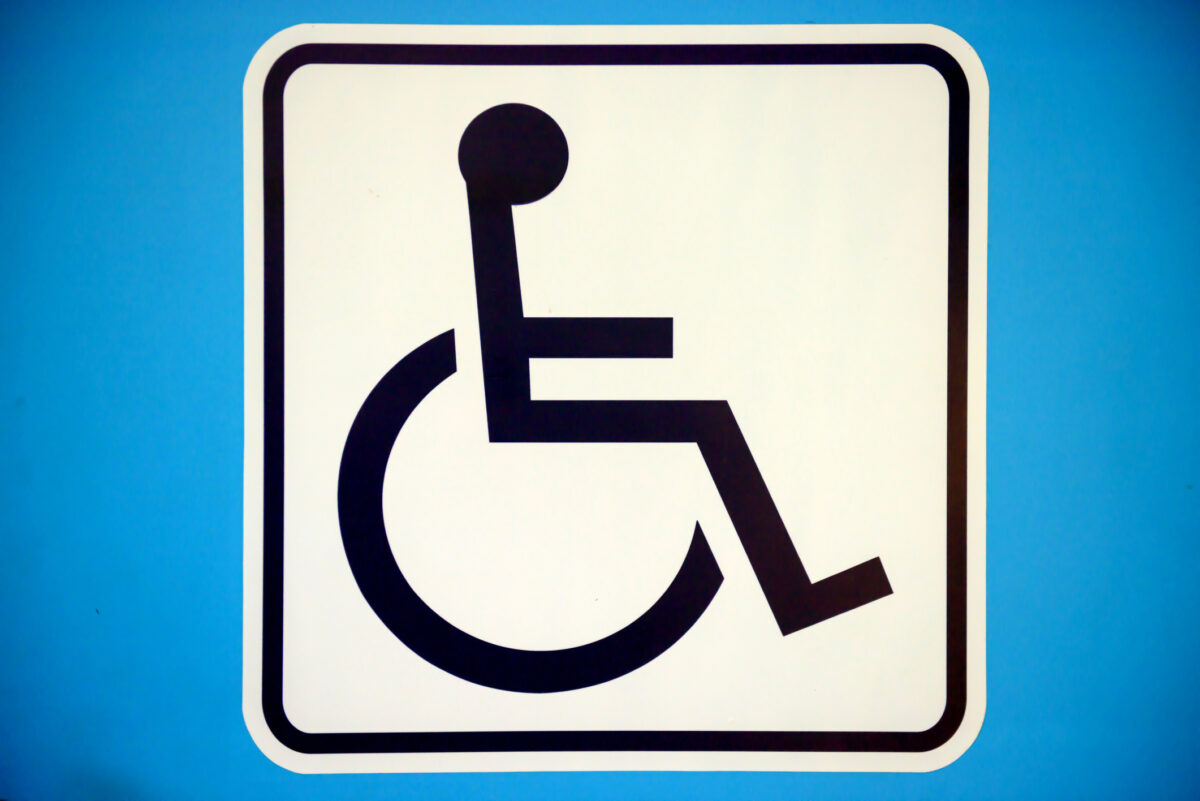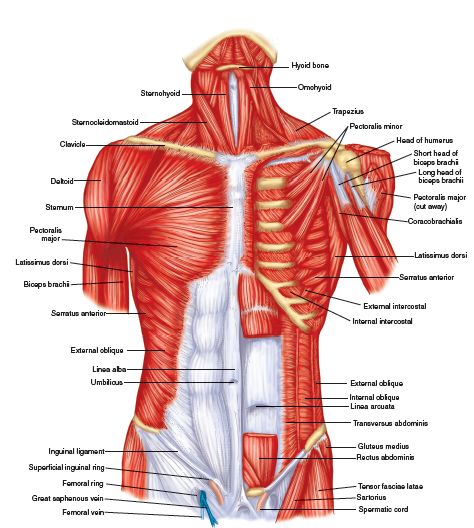Defence of a Frivolous ADA Lawsuit

Re: Yeong Lee v. Primary Resource Network Inc.
Central District of California, Case no. 8:21-cv-00045-DOC (Ex)
Dear Mr :
The purpose of this correspondence is to meet and confer on the deficiencies outlined below so that the parties may avoid unnecessary Court intervention. If the parties are unable to informally resolve these issues, please be aware that Defendant Primary Resource Network Inc. (“Defendant”) intends to seek dismissal of the above-referenced action.
- Plaintiff Yeong Lee “Plaintiff”) Lacks Standing to Maintain a Claim Under the Americans with Disabilities Act (the “ADA”)
- Plaintiff Did Not Suffer an Injury-in-fact
To establish Article III standing, a plaintiff must show: (1) that he has suffered an injury-in-fact, (2) that the injury suffered is traceable to the defendant’s action, and (3) that the injury suffered can be redressed by a favorable decision. (Chapman v. Pier 1 Imps. (U.S.) Inc., 631 F.3d 939, 946 (9th Cir. 2011).) Concerning ADA accessibility claims, where a plaintiff neither encounters nor becomes aware of a barrier that affects his full and equal enjoyment of a place of public accommodation, he cannot be said to have suffered an injury-in-fact. (See id. at 947.)
According to Plaintiff’s First Amended Complaint for Injunctive Relief and Damages (“FAC”), Plaintiff claims to have personally encountered up to four parking-related barriers at Defendant’s business (the “Bakery”) in August and September of 2020. (FAC, ¶¶ 9-10.) Specifically, Plaintiff alleges that Defendant failed to provide access aisles with level surface slopes, failed to provide van accessible parking designated for persons with disabilities, failed to paint the ground, and failed to mark the parking space with the International Symbol of Accessibility. (FAC, ¶ 10.) Plaintiff further asserts that those barriers denied her full and equal access to the Bakery. (FAC, ¶ 11.)
However, in August and September of 2020, the Bakery was [SO1] in light of the California Department of Public Health’s July 13, 2020 Statewide Public Health Office Order, which required dine-in restaurants to close indoor seating. As an alternative to pick up and go services, the Bakery was offering curbside service to its customers during this time. To take advantage of the Bakery’s curbside service, Plaintiff would not have had to park or exit her vehicle. Rather, she could have pulled up to the entrance of the Bakery where her order would have been delivered directly to her vehicle. For this reason, none of the “barriers” alleged in the FAC, even if any such barriers existed, had the effect of denying Plaintiff full and equal access to the Bakery. Since Plaintiff was not denied full and equal access to the Bakery, she did not suffer any injury-in-fact. Accordingly, Plaintiff lacks standing to maintain an accessibility claim under the ADA.[1]
Notably, even if Plaintiff did suffer an injury-in-fact, her ADA claim would still fail for lack of standing as outlined below.
- Plaintiff Fails to Allege Facts Sufficient to Demonstrate a Real and Immediate Threat of Repeated Injury
In addition to showing that he has suffered an injury-in-fact that is traceable to the defendant’s actions and which can be redressed by a favorable decision, a plaintiff suing for injunctive relief under the ADA must demonstrate a real and immediate threat of repeated injury. (Chapman, 631 F.3d at 946; see also Johnson v. JKLM Props., L.L.C., Case No. 5:20-cv-01078-EJD, *5 (N.D. Cal. 2020).) “Past exposure to an ADA violation does not in itself establish standing for injunctive relief.” (Johnson v. JKLM Props., L.L.C., Case No. 5:20-cv-01078-EJD at *5.) Rather, a plaintiff must show either (1) an intent to return to the premises or (2) deterrence from returning to the premises. (Chapman,631 F.3d at 953 (“[a]n ADA plaintiff must show at each stage of the proceedings either that he is deterred from returning to the facility or that he intends to return to the facility and is therefore likely to suffer repeated injury.”), Johnson v. JKLM Props., L.L.C., Case No. 5:20-cv-01078-EJD at *5, 8.)
- Plaintiff Fails to Demonstrate an Intent to Return to Defendant’s Business
“To determine whether a plaintiff’s likelihood of returning to a place of public accommodation is sufficient to confer standing, courts examine factors such as ‘(1) the proximity of defendant’s business to plaintiff’s residence, (2) plaintiff’s past patronage of defendant’s business, (3) the definitiveness of plaintiff’s plans to return, and the (4) the plaintiff’s frequency of travel near defendant.’” (Johnson v. JKLM Props., L.L.C., Case No. 5:20-cv-01078-EJD at *7 (quoting Johnson v. Overlook at Blue Ravine, LLC, 2012 WL 2993890, at *3 (E.D. Cal. 2012).) At the pleading stage, these factors help determine whether the plaintiff “…plausibly alleged a genuine intent to return or merely professed an intent some day to return.” (Johnson v. JKLM Props., L.L.C., Case No. 5:20-cv-01078-EJD at *8 (emphasis in original).) A mere profession of the plaintiff’s intent to return to the business someday is insufficient to establish standing under the ADA. (E.g., Molski v. Mandarin Touch Restaurant 385 F.Supp.2d 1042, 1046 (C.D. Cal. 2005 (“[s]tanding cannot be established ‘by respondents’ mere profession of an intent, some day, to return.’”) (quoting Lujan v. Defenders of Wildlife, 504 U.S. 555, 564 (1992).)
Here, the FAC states that, “Plaintiff wishes to patronize the Business again.” (FAC, ¶ 11.) However, Plaintiff fails to support this conclusory allegation with any facts that might show her alleged intent to return to be genuine. For instance, Plaintiff does not identify the distance between her residence and the Bakery, nor does she state that she has patronized the Bakery in the past. She also does not specify when she intends to return, the goods or services she intends to avail herself of in the future, or even why she intends to return to the Bakery. Plaintiff further fails to allege any facts showing any future plans to travel to the area where the Bakery is located or that she frequently travels to that area. Without any such supporting facts, Plaintiff does nothing more than merely profess her “intent” to someday return to the Bakery. As explained above, a mere profession of a plaintiff’s intent to someday return to a business is insufficient to establish standing under the ADA.
- Plaintiff Fails to Demonstrate That She is Deterred From Returning to the Business
In Johnson v. JLKM Props., L.L.C., the Court found that the plaintiff did not adequately allege that he was deterred from returning to the defendant’s business where the plaintiff alleged only a conclusory statement that the accessibility barriers deterred him from returning to the business. (Id. at *11-12.) The Court explained that the plaintiff did not allege: (1) a preference for the subject business over other similar businesses, (2) any specific instances of deterrence, or (3) that he often patronizes similar businesses in the area and would patronize the subject business but-for the violations. The Court also noted that the plaintiff did not even allege what goods or services he may seek from the defendant’s business. (Id. at 12.)
Similarly, in Johnson v. Overlook at Blue Ravine LLC, 2012 WL 2993890 at *10, where the plaintiff offered no evidence to corroborate his testimony that the ADA violations deterred him from returning to the defendant property, the Court held that the plaintiff lacked standing as he did not demonstrate a real and immediate threat of repeated injury.
Here, the FAC states, “Plaintiff is deterred from visiting the Business because her knowledge of [the alleged] violations prevents her from returning until the barriers are removed.” (Complaint, ¶ 11.) Again, however, Plaintiff fails to allege any facts to support such conclusory statement. For instance, Plaintiff does not allege any preference for patronizing the Bakery over the plethora of bakeries in the surrounding area, nor does she identify any specific instance of deterrence. Plaintiff similarly does not allege that she often patronizes similar establishments in the same area as the Bakery and that she would patronize the Bakery but-for the alleged violations. Plaintiff further fails to identify the goods or services that she might seek from the Bakery. By failing to provide any facts to support her conclusory statement, Plaintiff failed to adequately allege that she is deterred from returning to the Bakery.
As explained above, the allegations in the FAC do not sufficiently establish that Plaintiff is likely to return to Defendant’s business or that she is deterred from doing so. Plaintiff has thus failedto demonstrate a real and immediate threat of future injury as necessary to maintain an action under the ADA.
For the reasons discussed herein, Plaintiff failed to sufficiently demonstrate ADA standing. Accordingly, Plaintiff intends to move the Court, pursuant to FRCP, Rule 12(b)(1), for an order dismissing Plaintiff’s ADA claim for lack of subject matter jurisdiction. (See also FRCP 12(h)(3) (“[i]f the court determines at any time that it lacks subject-matter jurisdiction, the court must dismiss the action.”).)
- The Court Lacks Supplemental Jurisdiction Over Plaintiff’s State Law Claims
In the FAC, Plaintiff asserts five causes of action. (See generally, FAC.) As Plaintiff concedes in the FAC, the only cause of action over which the Court has original jurisdiction is the first cause of action, for violations of the ADA. (See 28 U.S.C. § 1331; FAC ¶ 1.) Relying on 28 U.S.C. § 1367(a), Plaintiff asserts that the Court has supplemental jurisdiction over her remaining four claims, which are all brought under state law. (FAC ¶ 2.)
Pursuant to 28 U.S.C. § 1367(a), in any civil action where a district court has original jurisdiction over one or more claims, that court also has “… supplemental jurisdiction over all other claims that are so related to claims in the action within such original jurisdiction that they form part of the same case or controversy under Article III of the United States Constitution.” However, under 28 U.S.C. § 1367(c), a district court may decline to exercise supplemental jurisdiction over a state law claim if, inter alia, the court has dismissed all claims over which it has original jurisdiction, the claim substantially predominates over the claim for which there is original jurisdiction, or exceptional circumstances present other compelling reasons for declining jurisdiction.
- Plaintiff’s Only Claim Brought Under Federal Law is Subject to Dismissal
A district court may decline to exercise supplemental jurisdiction over state law claims where the court has dismissed all claims over which it has original jurisdiction. (28 U.S.C. § 1367(c)(3).)
As previously discussed, Plaintiff’s ADA claim must be dismissed for lack of subject matter jurisdiction. Since Plaintiff’s ADA claim is the only claim over which the Court has original jurisdiction, Defendant intends to request dismissal of Plaintiff’s state law claims under 28 U.S.C. § 1367(c)(3).
However, even if the Court is not inclined to dismiss Plaintiff’s ADA claim, the Court is justified in dismissing Plaintiff’s state law claims under 28 U.S.C. § 1367(c)(2) and/or 28 U.S.C. § 1367(c)(4), as outlined below.
- Plaintiff’s State Law Claims Substantially Predominate Over Her ADA Claim
A district court may decline to exercise supplemental jurisdiction over state law claims where the state law claims substantially predominates over the claim for which there is original jurisdiction. (28 U.S.C. § 1367(2).)
Courts regularly find state law claims seeking monetary damages to substantially predominate over a federal ADA claim for injunctive relief. (See e.g. Org. for the Advancement of Minorities v. Brick Oven Rest., 406 F.Supp.2d 1120, 1131 (S.D. Cal. 2005) (concluding that “…the statutory damages available to [plaintiff] under the Unruh Act substantially predominate over the injunctive relief available under the ADA.”), Molski v. Hitching Post I Rest., Inc., No. CV 04-1077 SVW (RNBx), 2005 U.S. Dist. LEXIS 39959 at *23 (C.D. Cal. 2005) (concluding that the plaintiff’s “…state claims substantially predominate[d] over his federal ones,” due to the statutory damages available to the plaintiff for the alleged violations of the Unruh Act), Schutza v. Alessio Leasing, Inc., No. 18cv2154-LAB (AGS), 2019 U.S. Dist. LEXIS 60152 at *8-9 (S.D. Cal. Apr. 5) (finding that the plaintiff’s “…state law claim under the Unruh Act substantially predominate[d] over his federal law claim for injunctive relief,” where “[m]oney damages [were] the primary driver of [the] suit.”), Schutza v. Cuddeback, 262 F.Supp.3d 1025, 1030 (S.D. Cal. 2017). This is true even where the damages to be recovered are capped at $4,000.00. (Molski v. EOS Estate Winery, No. CV 03-5880-GAF, 2005 U.S. Dist. LEXIS 39936 at *12 (C.D. Cal. 2005).)
An allegation of intentional discrimination further bolsters a finding that a claim for monetary damages under California’s Unruh Civil Rights Act (the “Unruh Act”) predominates over a federal ADA claim. (Schutza v. Cuddeback, 262 F.Supp.3d at 1030.) This is because an ADA claim does not require a showing of intentional discrimination, while pleading intentionality permits a plaintiff to maintain an action under the Unruh Act independent of any action under the ADA. (Id. (stating that “…intentional discrimination is unnecessary to establish a violation under the ADA. However, intentionality is relevant to Plaintiff’s state law claim because it allows Plaintiff to maintain an independent action under the Unruh Act.”).) Furthermore, resolving the issue of intentional discrimination involves the application of state law standards. (Id. (quoting Schutza v. McDonald’s Corp., 133 F.Supp.3d 1241, 1247 (S.D. Cal. 2015).)
Here, while Plaintiff seeks only injunctive relief under the ADA, she seeks actual damages, statutory damages, treble damages, restitution, prejudgment interest, and attorney’s fees and costs under her state law claims. (FAC, Prayer, ¶¶ 1-4; FAC ¶ 42.) Specifically, Plaintiff’s second cause of action, for violations of the Unruh Act, seeks damages in an amount no less than $8,000.00 ($4,000.00 for each time that Plaintiff allegedly encountered accessibility barriers at the Bakery), along with attorney’s fees and costs. (See Cal. Civ. Code § 52(a); FAC, ¶ 9.) Plaintiff’s cause of action for violations of the California Disabled Persons Act similarly seeks a minimum of $1,000.00 in statutory damages for each of the two alleged encounters. (FAC, ¶ 13.) Plaintiff further seeks restitution of the profits received by Defendant during any month in which the alleged accessibility barriers existed pursuant to her UCL claim, as well as an unidentified amount of monetary damages pursuant to her state law cause of action for negligence. (FAC, ¶¶ 43-46.) That Plaintiff seeks such substantial damages clearly indicates that money damages under her state law claims are the central driver of this litigation.
With respect to Plaintiff’s Unruh Act claim, the fact that Plaintiff specifically pleads intentionality on the part of Defendant further indicates that this claim substantially predominates over the ADA claim. (FAC, ¶ 13 (providing that “…Plaintiff alleges, on information and belief, that Defendants knew that particular barriers render the Business inaccessible, violate state and federal law, and interfere with access for the physically disabled.”).) As explained above, the issue of intentional discrimination, which requires the application of state law standards, has no bearing on a claim under the ADA, but permits a Plaintiff to maintain an Unruh Act claim independent of any claim under the ADA. (See Schutza v. Cuddeback, 262 F.Supp.3d at 1030.)
As an additional matter, it does not appear that Plaintiff could receive any benefit under the ADA that is not also available under her state law claims. The only recovery available to Plaintiff under the ADA is injunctive relief. (Wander v. Kaus, 304 F.3d 856, 858 (9th Cir. 2002) (stating that “[d]amages are not recoverable under [] the ADA, only injunctive relief is available….”).) However, Plaintiff can, and in fact, does, seek injunctive relief through her state law causes of action for violations of the Unruh Act and the UCL. (FAC, ¶¶ 2, 42; FAC, Prayer, ¶ 1.) Plaintiff’s ADA claim thus appears to be a secondary, or incidental, claim included in this action solely as means to avoid California’s heightened pleading requirements for claims brought under the Unruh Act. (See Cal. Code Civ. Proc. § 425.50(a)-(b).) That the FAC does not conform with the state-imposed pleading requirements supports this conclusion.
Based on the foregoing, Defendant intends to request that the Court decline to exercise supplemental jurisdiction over Plaintiff’s second through fifth causes of action under 28 U.S.C. § 1367(c)(2).
- Exceptional Circumstances and Compelling Reasons Justify Declining Supplemental Jurisdiction
The Court is similarly authorized to decline supplemental jurisdiction over Plaintiff’s Unruh Act and related state law claims under 28 U.S.C. § 1367(c)(4). For instance, in Schutza v. Cuddeback, the Court concluded that its interest in discouraging forum-shopping justified declining supplemental jurisdiction over the plaintiff’s Unruh Act claim where the plaintiff was a high-frequency litigant who did not appear to gain any benefit by being in federal court besides evading California’s heightened pleading standards for Unruh Act claims. (Schutza v. Cuddeback, 262 F.Supp.3d at 1031; see also Brick Oven Rest., 406 F.Supp.2d. at 1132 (finding that “[b]ecause a legitimate function of the federal courts is to discourage forum shopping…compelling reasons exist to decline supplemental jurisdiction over plaintiffs’ state law claims.”).)
Here, like the plaintiff in Schutza v. Cuddeback, Plaintiff in is a high-frequency litigant. (See Cal. Code Civ. Proc. §§ 425.50(a)(4)(B), 425.55(b)(1).) According to PACER, Plaintiff filed her first ADA accessibility case on October 13, 2020. Plaintiff subsequently filed fifteen (15) ADA accessibility cases before filing the present action on January 11, 2021. Since January 11, 2021, and through April 17, 2021, Plaintiff filed nineteen (19) more ADA accessibility cases. Moreover, fourteen (14) of her?thirty-six (36) total ADA accessibility cases have already been closed.
Plaintiff also does not appear to gain any benefit by being in federal court that is not also available to her in state court. Recovery under the ADA is limited to injunctive relief. (See Wander v. Kaus, 304 F.3d 856, 858 (9th Cir. 2002).) However, Plaintiff can, and does, seek injunctive relief under her state law claims. (FAC, Prayer, ¶ 1; FAC ¶ 42.) From all appearances, Plaintiff included the ADA claim in order to evade the California’s heightened procedural rules for Unruh Act claims.
As discussed herein, the Court’s interest in discouraging forum-shopping justifies a decision not to exercise supplemental jurisdiction over Plaintiff’s state law claims. California’s interest in interpreting and enforcing its own unique procedural rules, as well as its interest in protecting its businesses from abusive litigation, further justifies declining supplemental jurisdiction over such claims. Accordingly, Defendant intends to request that the Court decline supplemental jurisdiction over Plaintiff’s state law claims under 28 U.S.C. § 1367(c)(4).
/ / /
- Plaintiff Failed to Properly Serve Defendant
FRCP, Rule 12(b)(5) authorizes a motion to dismiss for insufficient service of process. Pursuant to FRCP, Rule 4(e), service may be made by following the state law for service, or by delivering a copy of the summons and complaint to the defendant personally, leaving a copy of the summons and complaint at the defendant’s dwelling with someone of suitable age and discretion who lives there, or by delivering a copy of each to an agent authorized to receive service of process.
California state law permits a summons and complaint to be served upon a corporation by delivering a copy of each document to the person designated as agent for service of process, or to the president, CEO, other head of the corporation, vice president, secretary or assistant secretary, treasurer or assistant treasurer, controller or CFO, general manager, or other person authorized by the corporation to receive service of process. (Code Civ. Proc. § 416.10.)
Here, Plaintiff failed to properly serve a copy of the summons and complaint or FAC upon Defendant. Rather than serving Defendant through any of the methods identified above, Plaintiff left a copy of the summons and FAC on the doorstep of the Bakery. Accordingly, Defendant intends to seek dismissal of the FAC under FRCP, Rule 12(b)(5).
Please contact my office immediately if any of the above is unclear or if you wish to discuss the deficiencies addressed herein.
Thank you.
Sincerely,
Andrew K. Rauch
[1] For the same or substantially similar reasons, Plaintiff’s claims are subject to dismissal pursuant to Federal Rules of Civil Procedure (“FRCP”), Rule 12(b)(6).
[SO1]Bakery has never provided indoor dining. It provides baked goods to pick and go. Bakery has always been take-out only but started offering curbside service during this time, in response to the Public Health Order.




Responses